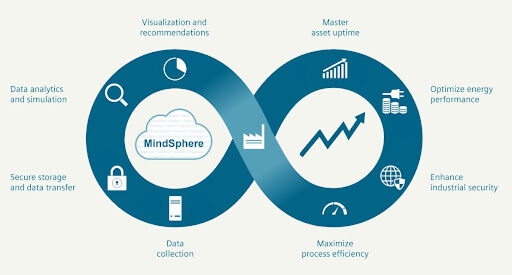 1-800-805-5783
1-800-805-5783 
Artificial Intelligence (AI) agents have transitioned swiftly from speculative futuristic concepts into indispensable elements within diverse sectors. These powerful technological tools now serve as central components in modern industries, automating complex tasks, significantly enhancing decision-making, and improving operational efficiencies. As their adoption accelerates, it is crucial to understand the multifaceted AI agent use cases clearly, particularly focusing on their evolving roles in 2024 and 2025, notably within the business sphere.
To fully appreciate AI agent use cases, it’s essential first to understand precisely what distinguishes them from traditional software. AI agents function autonomously and intelligently, capable of adapting dynamically to changes and learning from their environments without explicit human direction. Unlike static software solutions, AI agent use cases revolve around systems that continually improve through experience and interaction. For an in-depth exploration, you can review our previous insights on the role of autonomous agents in today’s AI ecosystem.
In recent years, especially into 2024 and 2025, AI agent use cases have expanded across numerous domains. From streamlining logistics operations and automating customer service to optimizing supply chains and facilitating financial analysis, the capabilities of AI agents are being leveraged more than ever. Businesses increasingly rely on AI agent use cases to reduce costs, elevate customer experiences, and uncover hidden patterns in large datasets.
The integration of AI agents into healthcare has been transformative. Their ability to automate diagnostics, manage comprehensive patient records, and support clinical decisions significantly enhances the quality and speed of healthcare delivery. As organizations seek to understand how to use AI agent technologies effectively, these tools continue to redefine medical workflows. Prominent AI agent use case examples include:
1. Healthcare
Diagnostic Assistance: AI agents analyze complex medical imaging data to detect diseases early and accurately.

Patient Monitoring: Real-time analysis and monitoring of patient vitals, providing immediate alerts during critical health emergencies.
Operational Efficiency: Automation of hospital scheduling, resource allocation, and administration, vastly improving service efficiency.
2. Finance
In finance, AI agents have reshaped operational frameworks, introducing enhanced decision-making capabilities and robust risk management techniques. Notable AI agent uses are:
Fraud Detection: Real-time identification of unusual or suspicious transactions, significantly minimizing financial losses.
Algorithmic Trading: Autonomous decision-making capabilities based on comprehensive market analysis and predictive algorithms.
Customer Service Automation: Intelligent chatbots capable of providing immediate, personalized responses to customers around the clock.

To further differentiate the impact of traditional automation versus AI-driven automation in finance, consider reading our detailed analysis here.
3. Retail
Retail sectors employ AI agents to create enhanced customer experiences, optimize inventory management, and anticipate consumer behavior trends. Each AI agent use case reflects data-driven innovation:
Personalized Recommendations: AI-driven systems analyze past consumer interactions to deliver precise and personalized product suggestions.

Inventory Optimization: Predictive analysis and dynamic inventory forecasting, substantially reducing waste and preventing stock-outs.
Enhanced Customer Engagement: Handling diverse customer interactions automatically, improving service quality, response times, and overall satisfaction.
4. Manufacturing
AI agents in manufacturing streamline processes, boost productivity, and minimize downtime through predictive capabilities and automation prowess. Knowing how to use AI agent systems in industrial environments yields measurable ROI. Key AI agent use cases include:
Predictive Maintenance: Anticipating equipment failures before they occur, minimizing downtime and repair costs.
Automated Quality Control: AI-driven inspection processes significantly reduce human error, improving production quality and consistency.
Efficient Resource Allocation: Maximizing productivity by automating the management and allocation of manufacturing resources.

Explore the role of autonomous AI in manufacturing in greater depth with our in-depth analysis.
5. Education
Educational institutions benefit substantially from AI agents, leveraging them to offer personalized learning experiences and improved administrative efficiencies:
Personalized Learning Paths: AI agents assess individual student performance to tailor educational materials dynamically.
Automated Administrative Tasks: Routine administrative processes, such as attendance, grading, and scheduling, are streamlined through automation.
Accessibility Enhancements: AI agents offer customized support for students with disabilities, creating inclusive and effective learning environments.

AI agents are advanced software systems capable of autonomous operation, adaptive learning, and decision-making without continuous human intervention.
Unlike traditional automation, AI agents adapt dynamically, learn from new data, and operate autonomously, enhancing capabilities beyond basic task automation.
Major sectors impacted include healthcare, finance, retail, manufacturing, and education, each benefiting from improved efficiency and decision-making.
Businesses often face challenges related to data privacy, complex system integration, and bridging the skills gap among their workforce.
AI agents will increasingly handle more sophisticated and critical tasks, expanding their autonomous decision-making capabilities significantly in the coming years.
AI agent technology presents exciting possibilities across diverse sectors, fundamentally reshaping industries like healthcare, finance, retail, manufacturing, and education. By understanding these comprehensive use cases, businesses can leverage AI agents effectively to drive transformational growth, efficiency, and competitive advantage.
Proactively adapting to and embracing these technological advancements will be vital for success in an AI-driven future.
At [x]cube LABS, we craft intelligent AI agents that seamlessly integrate with your systems, enhancing efficiency and innovation:
Integrate our Agentic AI solutions to automate tasks, derive actionable insights, and deliver superior customer experiences effortlessly within your existing workflows.
For more information and to schedule a FREE demo, check out all our ready-to-deploy agents here.